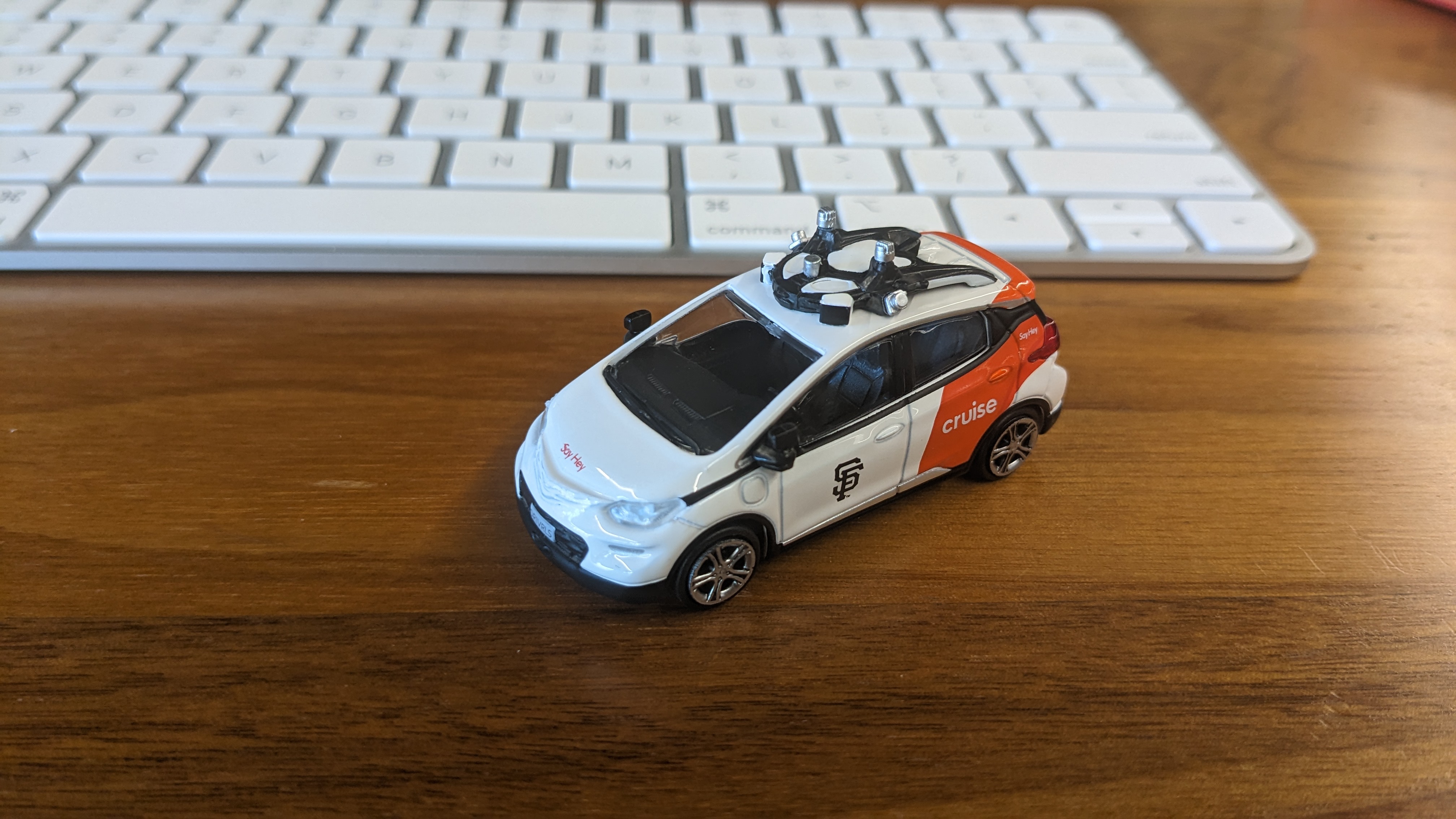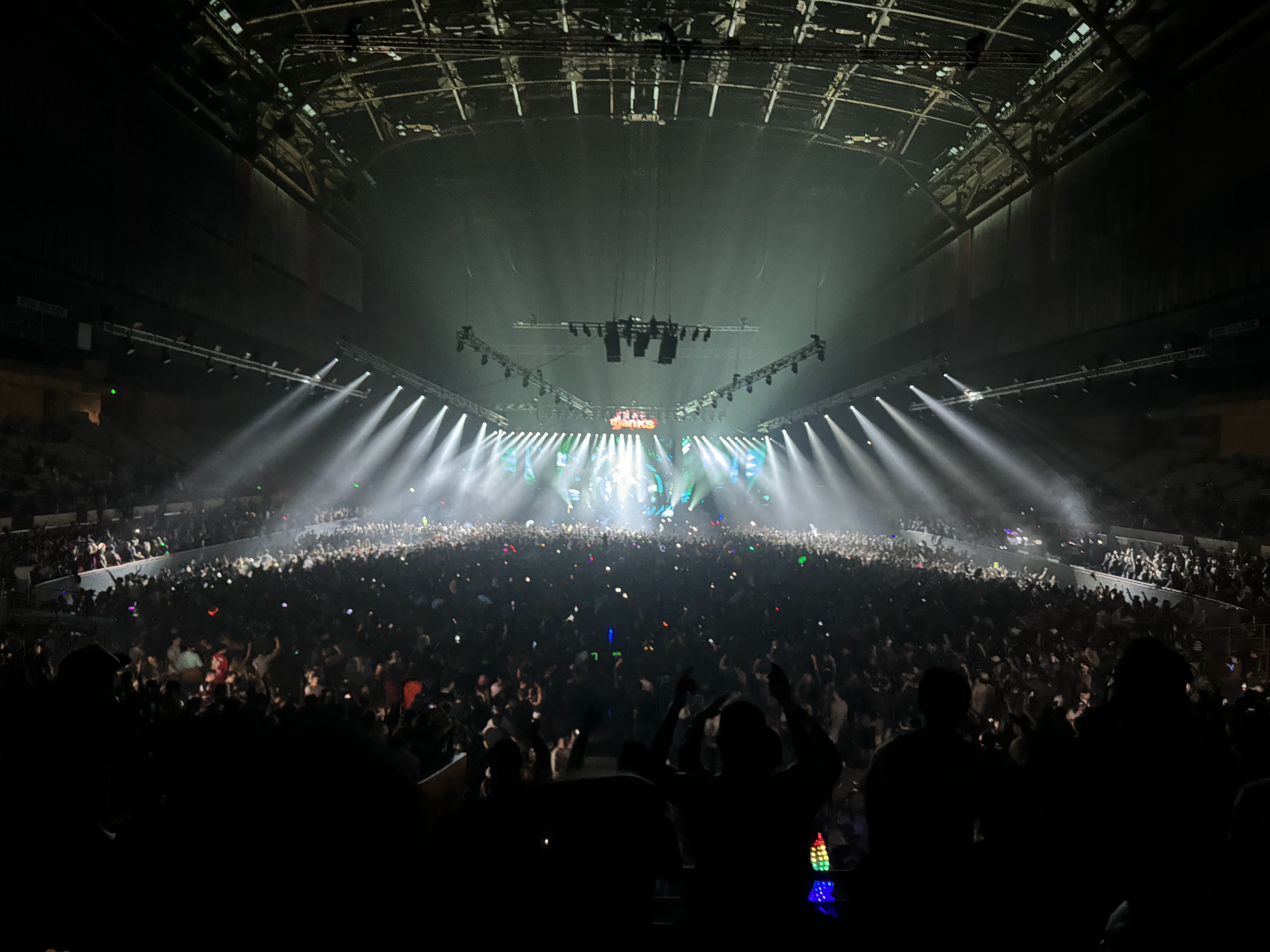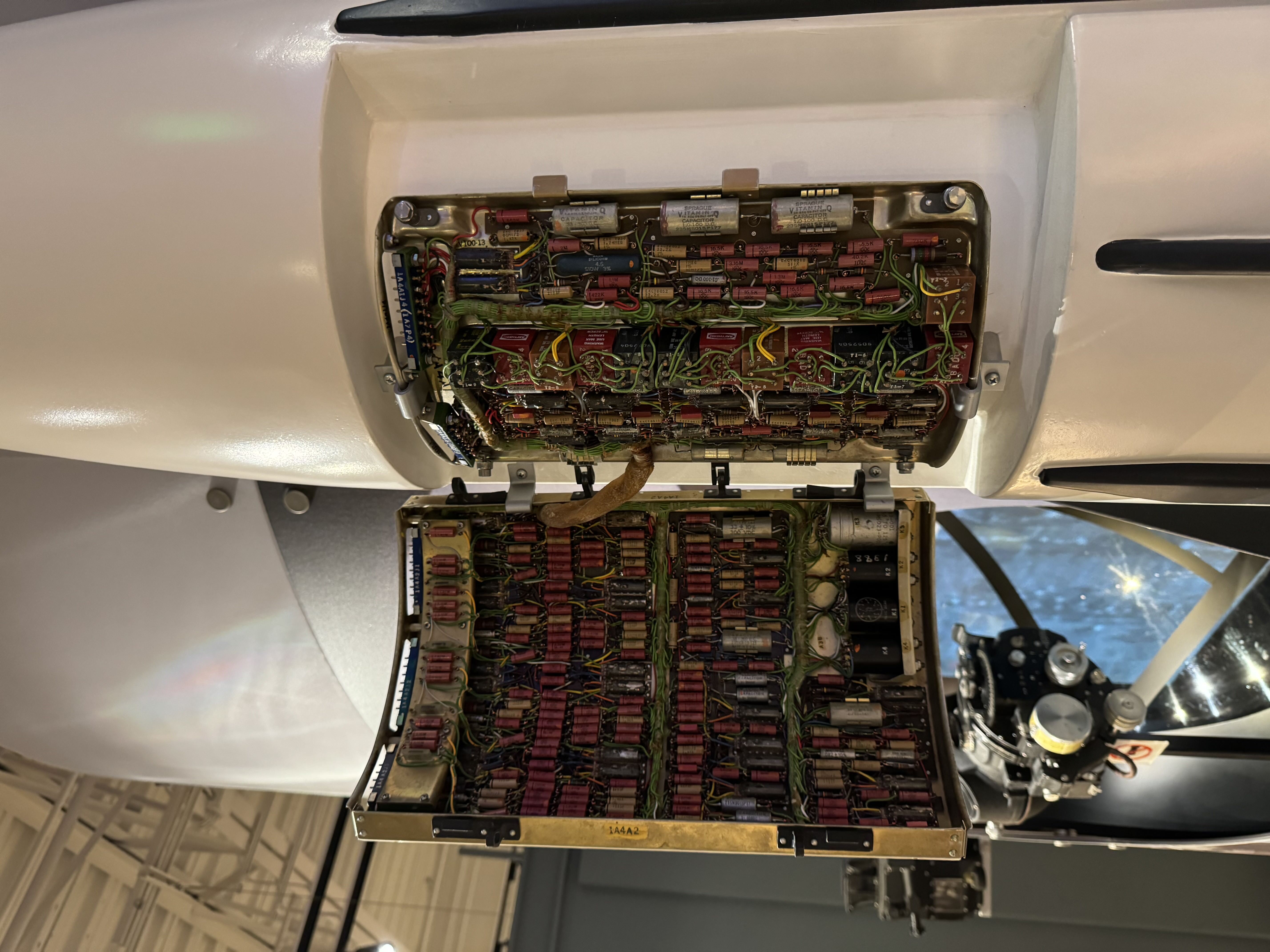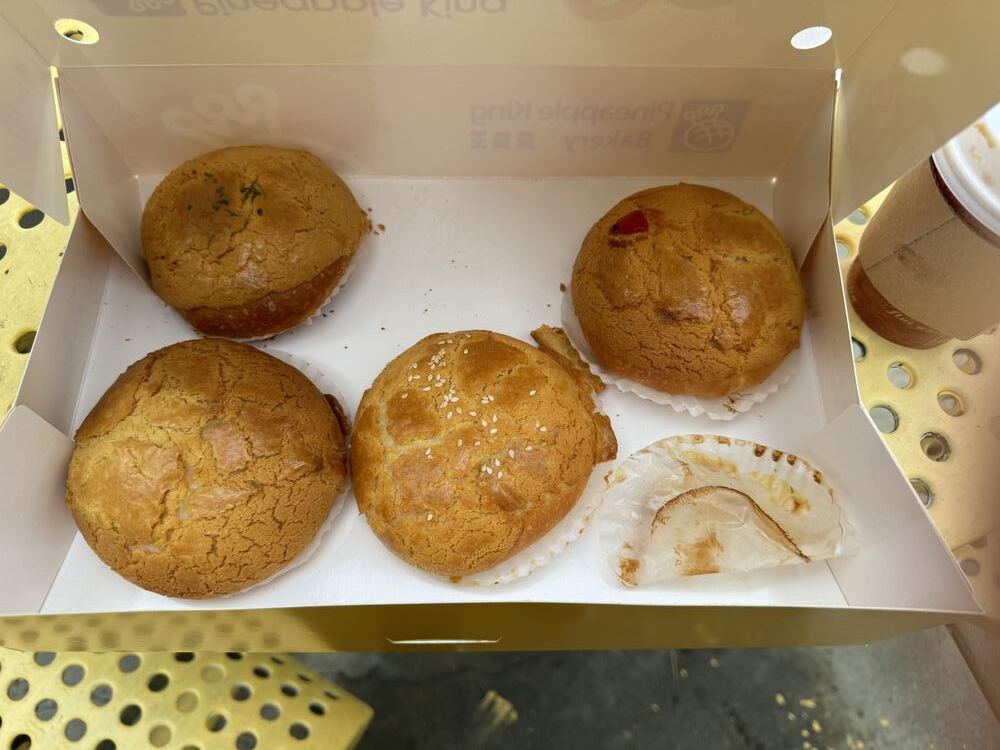Guest post by Frank Hui
I started travelling recently again, after a long stint of staying in Vancouver, the root cause of which was the global COVID-19 pandemic that started in 2020 and significantly affected our way of living until 2022. Now, this was why I stopped travelling in the first place, but the real reason was that I had always travelled with my parents, and 2020 was when I started university and began my process of becoming an independent adult, and I guess among making sure I was doing well in my academic and professional career, travel was not at the top of mind.
So the only way to describe how I felt flying for the first time in three years to live in a new city for four months, is odd. I was leaving to attend an internship at Cruise, a self-driving car company, which was a dream company for me. My grade 10 high school science fair project was a traffic simulator that let users place down roads. Circles would spawn, representing cars, with a random location as their telos—their ultimate destiny—and would disappear from my digital world. Doing background research for that project made me realize the utter inefficiency of the state of transportation in North America. The fact that humans are bad at driving not only wastes an incredible amount of time for everyone involved in the road, the amount of lives we lose to accidents is tragic. Approximately 1.19 million people die from car accidents every year. If you’ve been reading without any pauses or skipping up until now, about 2 people just died because of a car accident.
High school Frank never drove. Human drivers are terrible, but university Frank after having recently experienced the freedom and pleasure of driving understands why people still want these metal death machines to exist, but high school Frank thought that autonomous vehicles were the solution: computers don’t get tired nor can they be inebriated, and they can also accelerate in a coordinated way such that the root cause of traffic jams, chained human reaction time, is eliminated. A city full of self-driving cars can drive in a brutally efficient but also graceful way that only a synchronized system powered by computers can.
 Toy model of a Chevy Bolt modified with Cruise sensors
Toy model of a Chevy Bolt modified with Cruise sensors
Cruise also paid well and was a pretty prestigious company, so not only was I excited to work at a company that aligned with my values and beliefs, but it also meant I was getting lots of money and clout.
And who doesn’t feel at least a little bit of excitement at that prospect.
So waiting for my flight at the airport that day, my emotions were a pint of Excitement Ice Cream with a Swirl of Trepidation. As I watched the ground draw further and further away, that swirl became the main flavor, and instead it was Trepidation Ice Cream with Cookies and Nostalgia, except it was a nostalgia tinged with fear instead of longing. I wasn’t thinking of “what used to be?” but rather “what will I be facing?”. Landing in San Francisco and unpacking everything was equally odd: This will be my life for the next four months. This essay format is largely inspired by John Green’s The Anthropocene Reviewed, and one of the central themes of the book is that you feel like how you feel now, is how you will feel forever. And this was my forever for four months.
The biggest challenge I faced at Cruise was an immense sense of loneliness. This wasn’t a problem at first—I was too busy digging my roots into a new city, going through the onboarding process at Cruise, getting groceries, getting familiar with my route to the office (which was a pleasantly short 12 minute walk to the office)—but once I was settled in, my first couple of months at Cruise were miserable. Sure, I had an incredibly supportive mentor and team, and my work was interesting and I was enthralled by it, but I was miserable. I knew no one in San Francisco and I had to build new friendships with other interns at Cruise. I fell back on playing games with my high school friends, something that started happening during the start of the pandemic, but this wasn’t as fulfilling as a social activity as it was during that time for two reasons:
- I felt like I had exhausted that avenue of socialization
- Hanging out with people in-person has offered so much fulfillment that online interaction paled in comparison
My first ever relationship was also struggling at the time due to inexperience and a shaky foundation of trust. And so my first ever break up was remote, in a new city, and at a new job that I had to prove myself at. I think this affected me more than I had thought it did, because while I shoved the feelings away to focus on work, it pushed me to find ways to forget when I wasn’t at work, and forget I did.
Since a couple of my other friends who used to intern at Cruise were also recently broken up with, I was invited to my first rave, which led me down a deep EDM rabbit hole, and my indie rock was slowly replaced by Gryffin, Subtronics, and other EDM artists, among which, I came across Porter Robinson. I had heard of him back when he did a League of Legends collab, but none of his music emotionally connected with me until that moment in San Francisco. Having gone to my first rave, I wanted to experience this again, so I checked if Porter was playing in San Francisco anytime soon, and lo and behold, he was performing during American Thanksgiving at a rave. I told my friend Eric that I was considering going to this rave, and he replied saying that one of his friends was actually in the Bay Area too, Jason. Jason had a lot more experience raving, and I probably wouldn’t have gone if he didn’t agree to come. Jason was in a similar situation to me: moved from Vancouver for six months to intern at Tesla, and was also feeling the loneliness. Not only did Jason agree to come, Eric and Joanne also flew to SF. Eric was one of my closest friends at the time, and we’ve only gotten closer since, but even though I wasn’t terribly familiar with Jason or Joanne at the time, they were some of the kindest, friendliest people I’ve ever met in my life, and suddenly I was surrounded by friends.
 Give Thanks day 2
Give Thanks day 2
We spent the week leading up to the rave visiting the Cruise office, eating at Daeho, exploring the Golden Gate park, watching the SF sunset casting its indescribably beautiful orange light into the sky as it dipped below an ocean that stretched infinitely far, and then going home to make pizza with the pizza stone that came with my AirBnB. The rave came, and it was one of the best musical experiences I’ve had in my life, but its impact was actually delayed—the most significant and immediate change to my identity was caused by my friends from Vancouver, Eric and Joanne, flying all the way, and my friends from Sacramento, Amber and Quinn taking the AmTrak, and Jason and Miranda in the Bay Area taking almost equally grueling trips, all to spend their time to hang out with me in SF. From this, I realized three fundamental truths:
- Nothing we do is in solitude.
- All we live for is others.
- Almost all that we do is for others.
A common self-care idiom is to live for yourself, but this is logically incoherent. Think about all the things you do, no matter which stage of life you are in. Are you in elementary school, high school, university, working at a job? Do you listen to or play music, paint or draw? Do you play a sport like soccer or basketball? Do you take care for someone in need or provide a service for others, like teaching or pedicuring? Do you work at a job you love, or even hate?
Trace back why you do all of these things.
The answer is always for others. This is obviously true for some acts: taking care of another person or teaching others. This is slightly less obviously true for other acts. If you feel like you have a grander purpose in life, for example, to make some significant scientific discovery or create a renowned piece of art, these too, must be for others. Scientific discovery benefits all of humankind, and what good is art if not to be held in the eyes, ears, mouths, hands of others?
Then even less obvious: if your purpose for work is survival, why do you continue to survive? If not for family or friends, or perhaps the hope of future family or friends, then what?
Finally, I think some things may be done purely for their own enjoyment. For example, listening to music can be done simply because it brings pleasure, and yet you cannot enjoy it in solace, for someone else made your music and if you are the musician, do you make music only for yourself? Is there no one you thought of while making the music or no one you wanted to share it with?
If you are unable to trace the reason as to why you do something to be for other people, try harder, and if you still cannot, question why you continue to do it.
After Eric and Joanne returned to Vancouver, I had a hangout planned with Jason, Amber, Quinn, and Miranda every weekend, which was a shame, since there was only one more month we had left together. I had gone from vowing to never leave Vancouver ever again to truly falling in love with SF. Now, SF occupies a very special place in my heart. It’s an incredibly beautiful city where I grew and experienced so much. In the last week, I explored the Computer Science History Museum with Miranda and went to Pineapple King with Jason, and I slept over at his place in Fremont. The next night I took the train back to SF, the last time I would see Jason in SF, and I felt the same feeling I did flying to SF—the feeling of leaving.
 Electronics inside of a model rocket at the Computer Science History Museum
Electronics inside of a model rocket at the Computer Science History Museum
 The best pineapple buns in the bay area: Pineapple King
The best pineapple buns in the bay area: Pineapple King
I grew up reading Dune with my brother, and one of the most well known parts of it is the “Litany Against Fear”, where it is said that “fear is the little-death that brings total obliteration”. I’d like to argue that while fear may be a little-death, it is not the little death. One of the ways to experience little-death is to leave behind your way of living. As the BART left the station, I felt this little-death. I would never live in San Francisco in the same way again, nor would I hang out with Jason, Amber, Quinn, and Miranda in the same way again. This way of living is gone and as irrevocable as any formerly living organism, except unlike regular death, we have a pretty good guess as to what will happen after it, and it’s neither heaven nor hell, and it’s also not eternal nothingness. My afterlife was returning to Vancouver, living with my parents for a week, then going to school, where I had some of the best 4 months of my life, making new friends and deepening existing friendships.
These places of going, airports, train stations, ports, are where these little-deaths happen the most frequently. Next time you’re at one of these places, be aware of this. The people who are just going on vacation for a week or two may not experience this, but mourn for those who are leaving their lives permanently, for something has been lost forever, and at the same time, celebrate the birth of their new life.
For the growth I received from visiting a place of going but also the irreplaceable way of living I’ve lost, I give places of going, 4 stars.